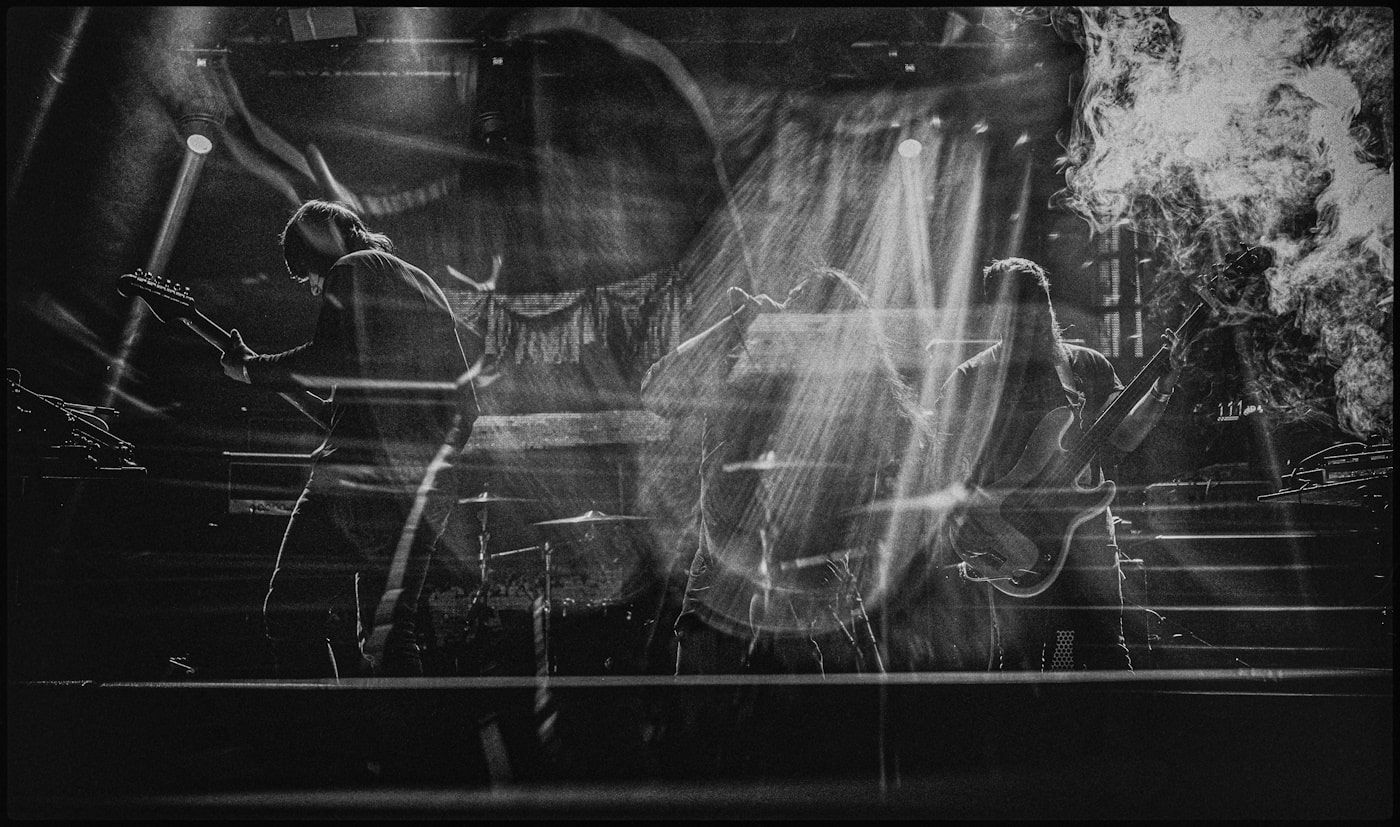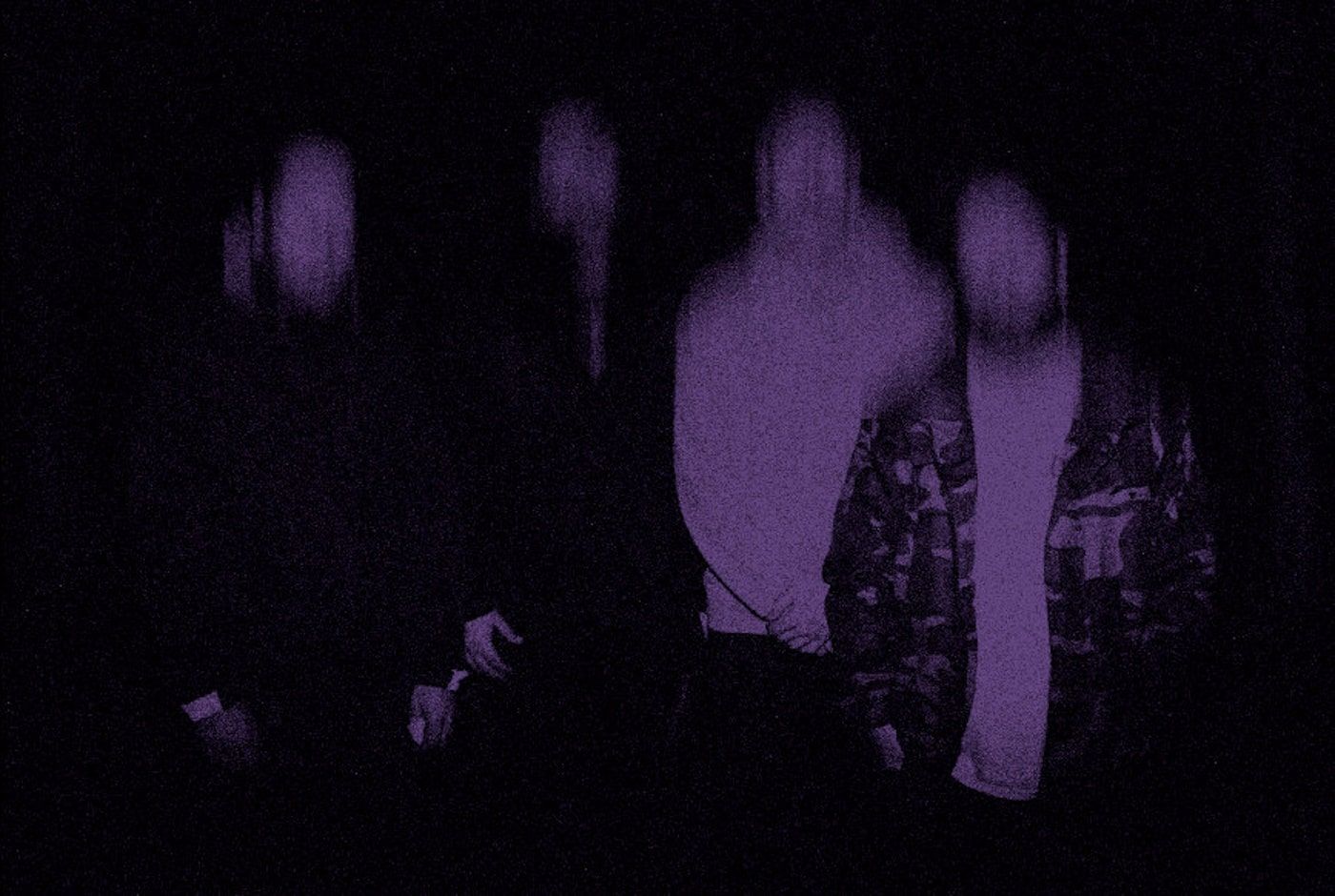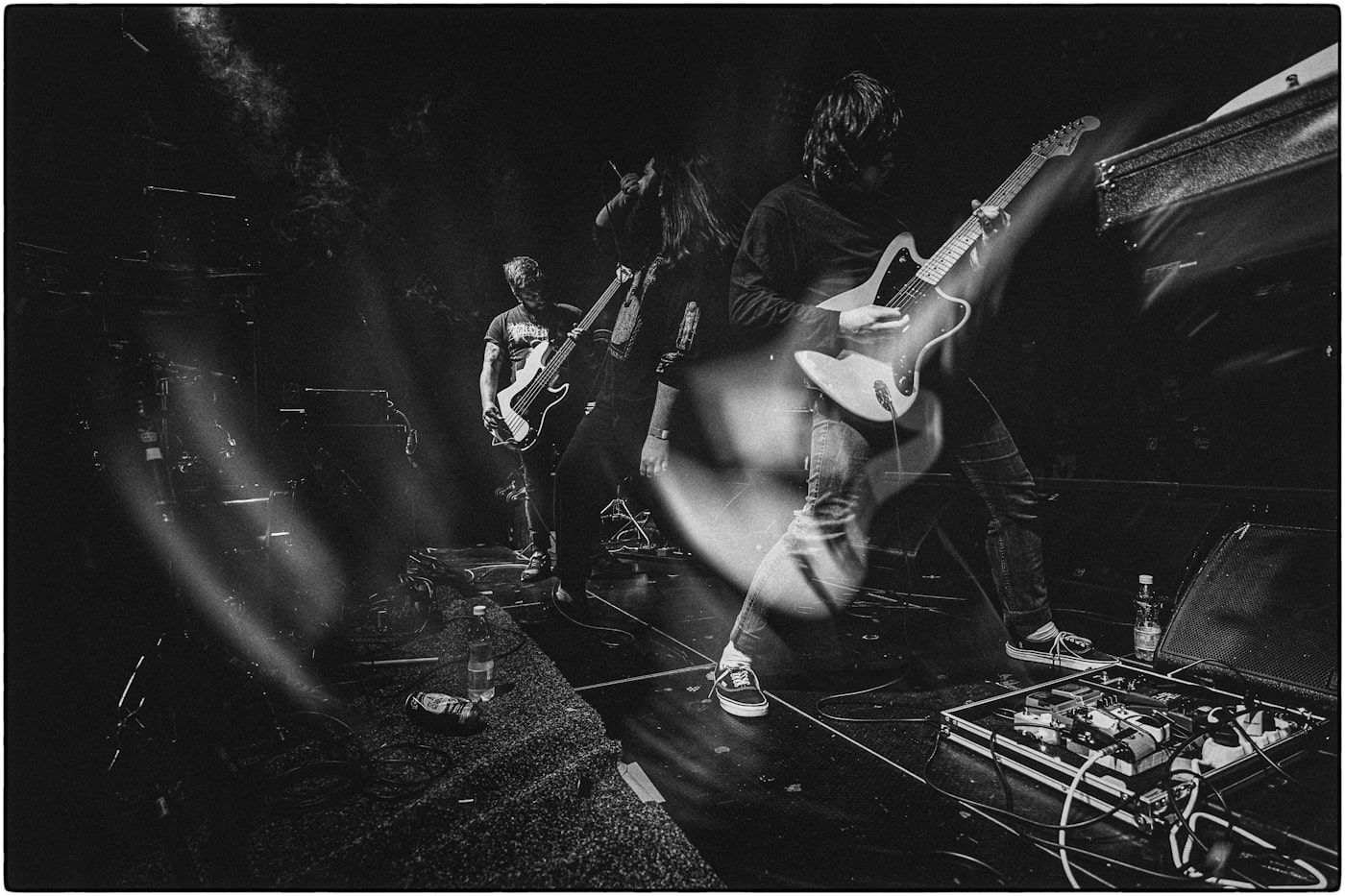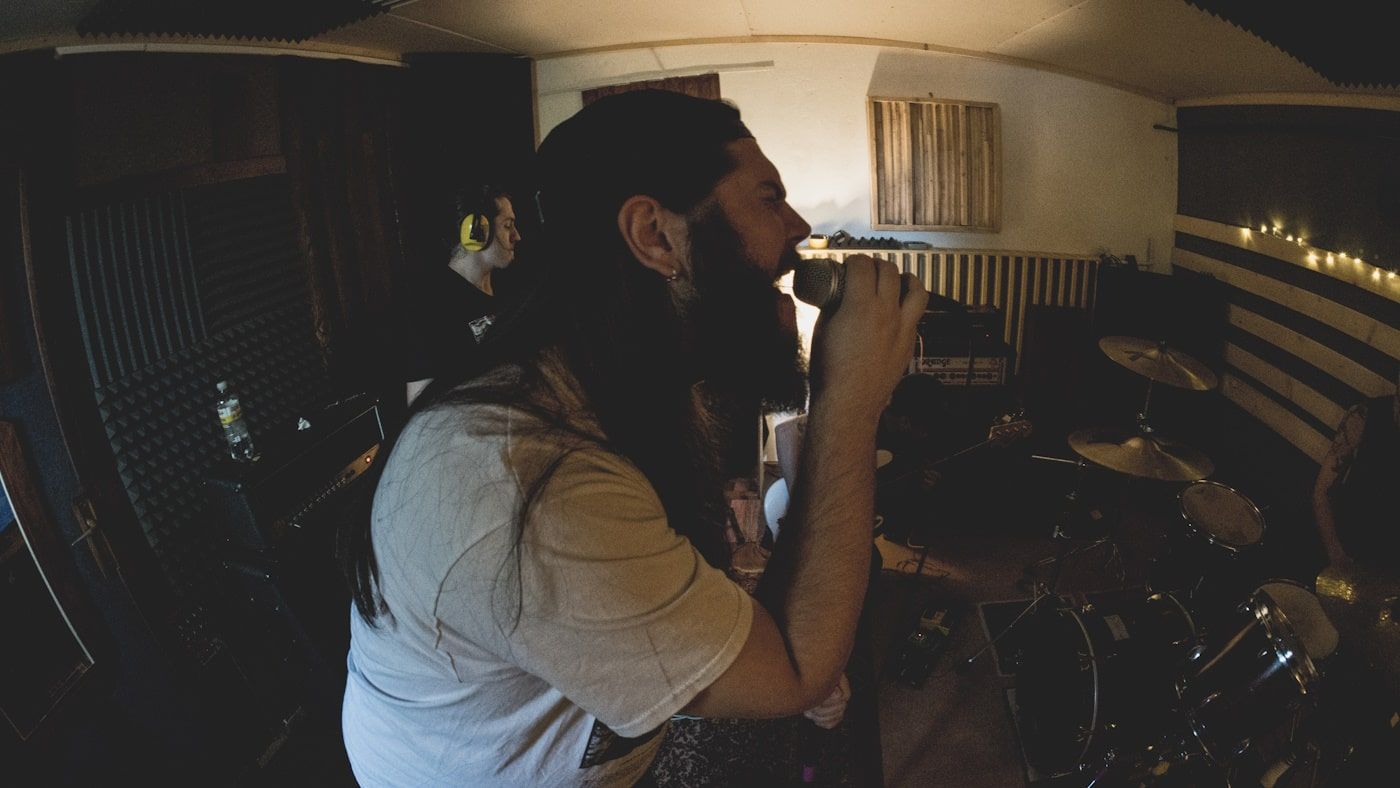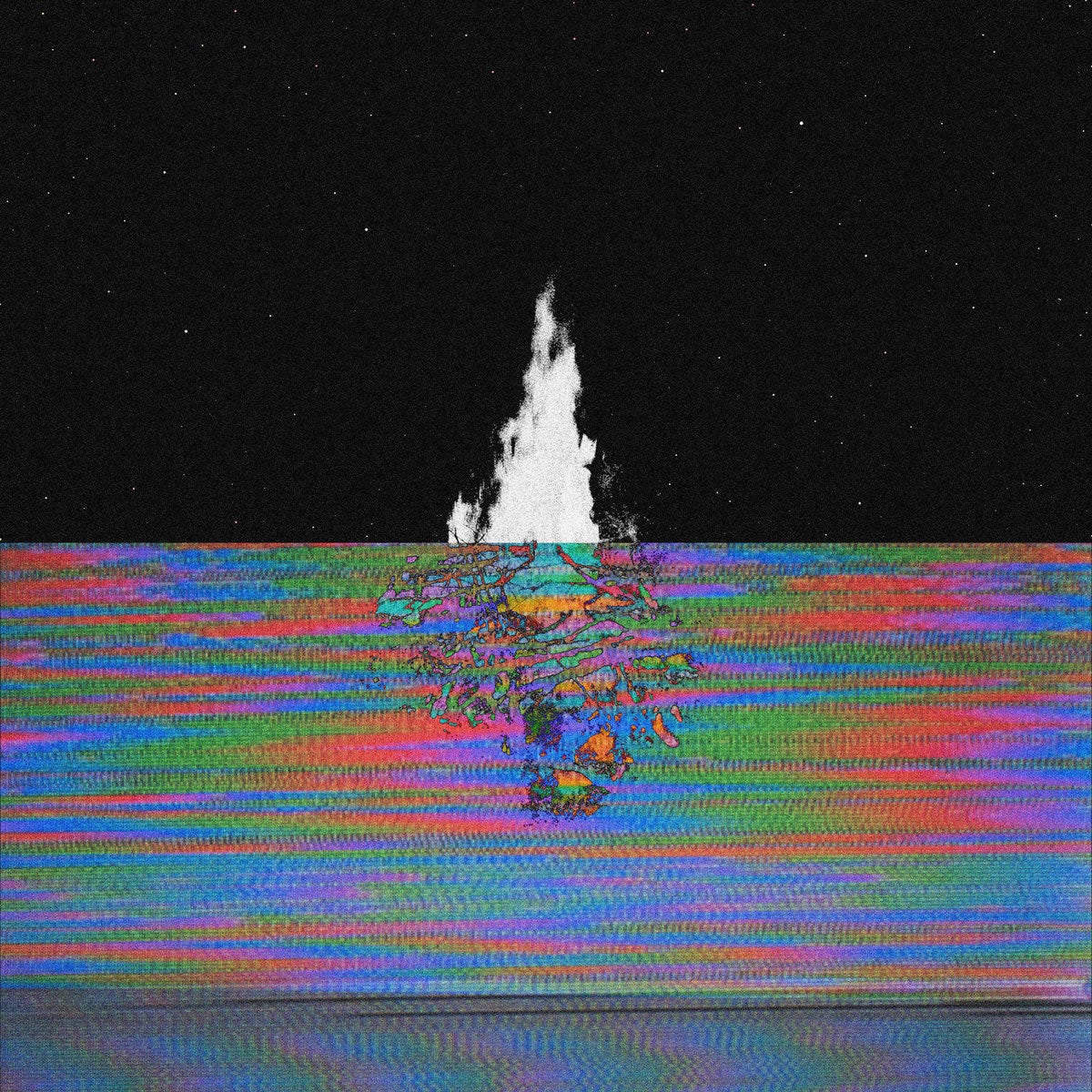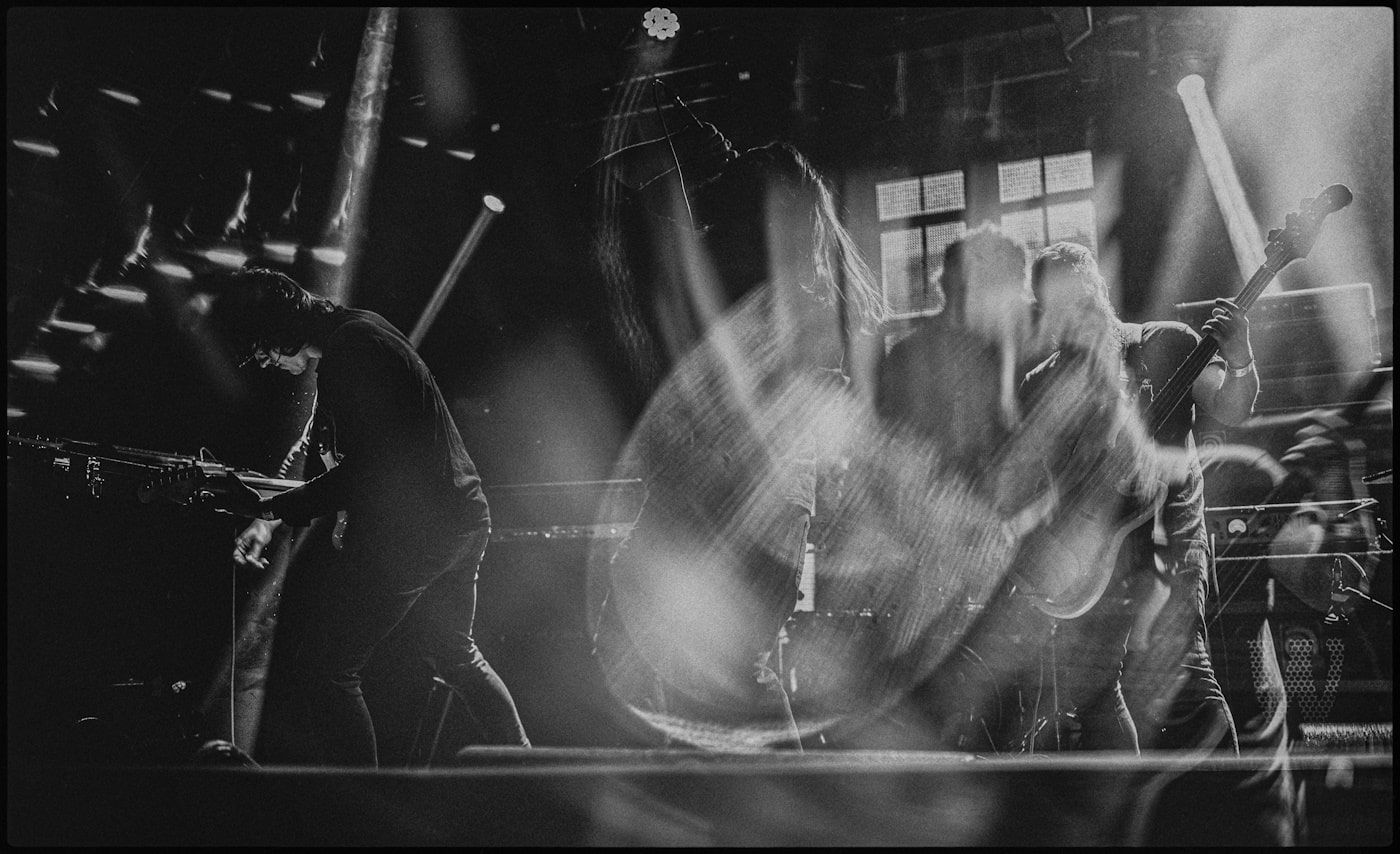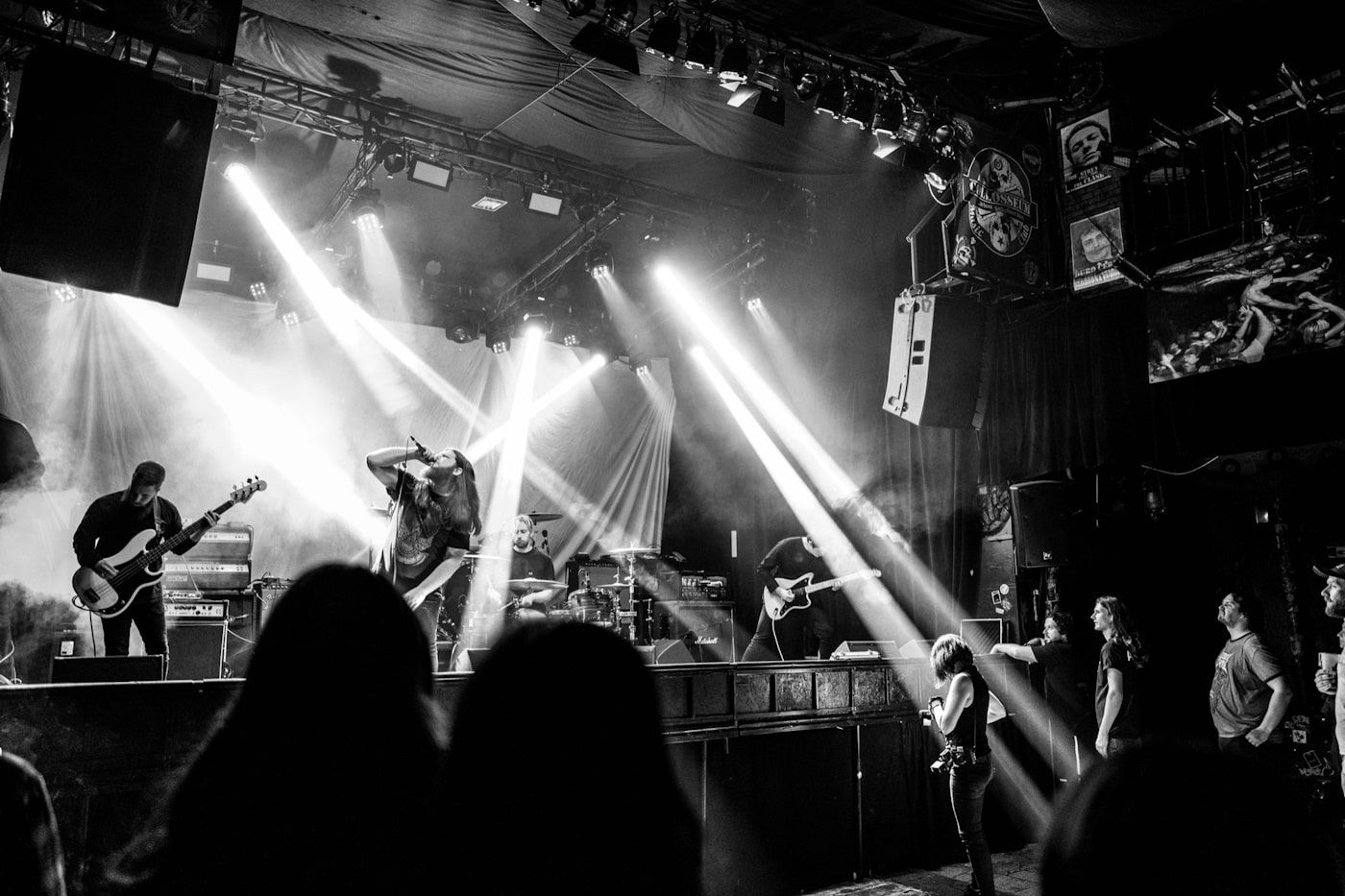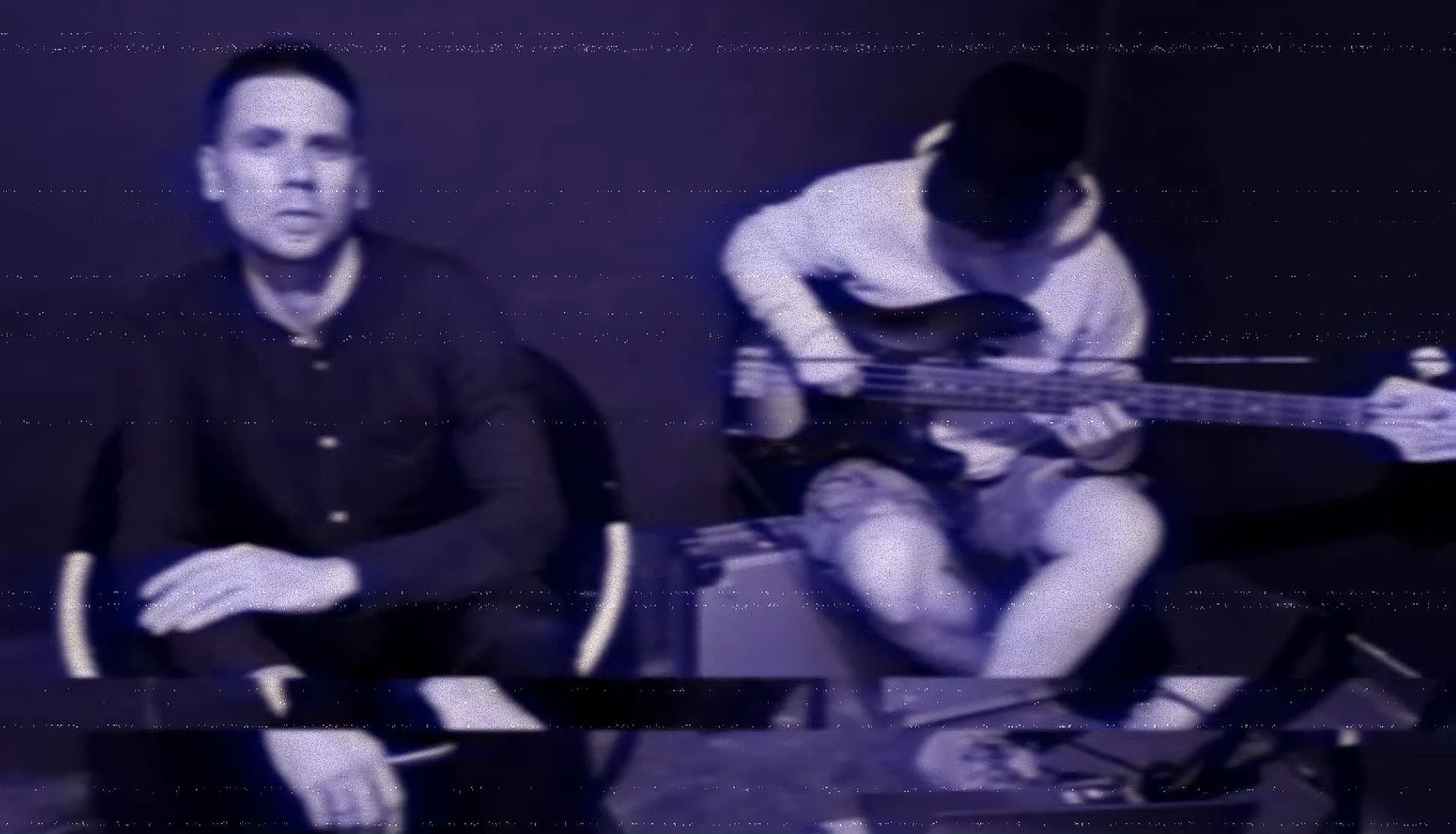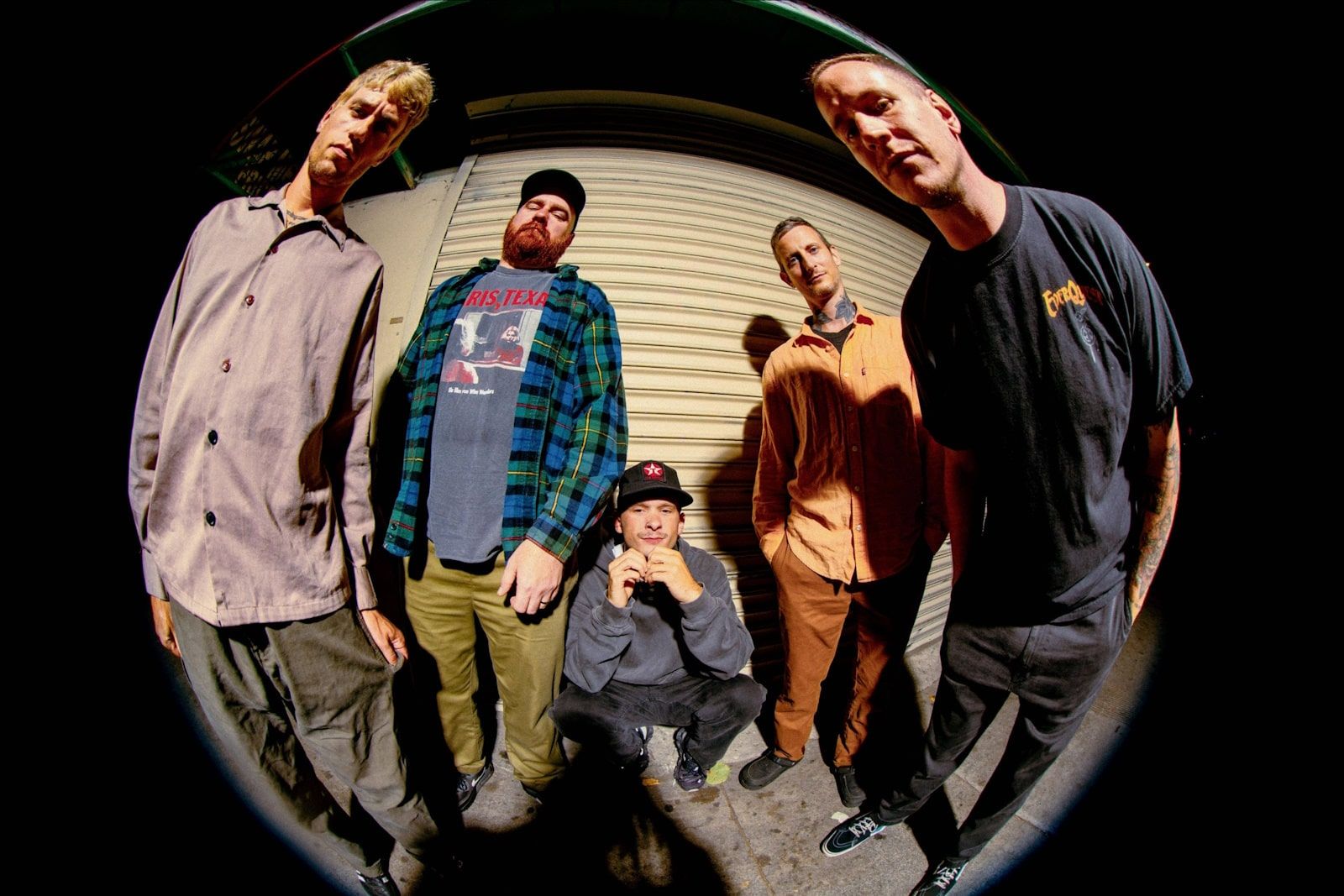Hungarian avant-garde post-metal band BORU emerges from the depths with their latest release, Self-Dealer, an album that transcends the boundaries of genre and delves into the existential questions of human existence and cosmic forces.
Formed in Szeged in 2017, BORU’s sound has evolved, blending influences from sludge, doom, and post-metal with avant-garde experimentation, including the use of cello bows and techno elements.
The band’s journey is deeply intertwined with Hungarian cinematic and folkloric influences, creating a soundscape that is both eerie and expansive. With Self-Dealer, BORU uses a blend of Eastern-inspired riffs, drone machines, and synths, pushing their sonic boundaries further than ever before.
Thematically, Self-Dealer is vast, cosmic, and spiritual.
The album grapples with the notion of perception and reality, questioning how well we truly know the world around us and what filters distort our view. In this journey, the band explores both objective and subjective truths, reflecting on humanity’s collective experience and how it’s woven into the fabric of the universe.
Self-Dealer also touches on deeply philosophical and psychological themes, with significant influences from figures like Carl Jung and Hungarian philosopher Béla Hamvas. It presents a world where the ego, cosmic forces, and human experiences collide, leaving the listener to contemplate their place in the universe. Spirituality subtly pervades the album, not in a religious sense, but as a reflection on the shared experiences of humanity and the unseen forces at play in our lives.
Lyrically, the album is a meditation on these existential questions, woven together by abstract, monologue-like reflections from cosmic entities. It challenges listeners to question the nature of reality, the lies of the ego, and the unseen truths that linger just beyond perception. Through each track, BORU invites us to explore not only the cosmos but the inner workings of the human mind and soul.
Musically, Self-Dealer is an adventurous departure from their earlier material, with the inclusion of clean guitar riffs, atmospheric sections, and death metal influences, creating a complex and textured sound.
“We started using more synthesizers, which, in my opinion, made the material more exciting. We tried out ideas that we hadn’t really dared to explore before. We don’t want the band to repeat itself; we didn’t want to write the same material twice. So sometimes you have to take risks and try new, even strange, ideas to keep things from becoming boring.” – comments Mike (guitars, vocals).
“You can see with a lot of local bands that they’re afraid to create something new because they worry it might not appeal to others. I don’t think that’s something to worry about. You should do what brings enjoyment and a sense of freshness musically, always looking for new perspectives. There’s no need to stick to a particular style. At least, that’s my opinion.”
The band’s DIY ethos remains strong, with members taking on the roles of audio engineers, designers, and videographers, ensuring that the album reflects their vision in every detail.
The studio session for the new LP began in February 2024,which involved a week of drumming, creative work, eight guitar recordings, and a lot of studio work.” – says Mike.
“Recording, mixing, mastering, design, videos, and covers are all done by us. This allows us to make everything sound and look exactly how we want.”
The cover of Self-Dealer is a striking departure from typical metal album aesthetics.
As BORU‘s guitarist Mike explains, “We didn’t want a typical metal album cover, they are kind of boring at this point.” Instead, the band opted for a more symbolic and layered approach. The central image of fire, ignited from dried winter branches by Mike’s mother, represents the album’s core theme of shared experience. This simple yet powerful act of lighting a fire captures the raw, organic connection between humanity and the chaotic forces that surround us.
The album cover also features noisy textures and stars, which reflect the unpredictability of chaos, mirroring the themes explored within the music itself. This visual representation of chaos contrasts with the fire’s symbolism of unity and collective experience, blending the cosmic and the human in a single image.
View this post on Instagram
For BORU, aesthetics are a crucial part of their identity, with Mike emphasizing that “Aesthetics have always been very important to this band. We want our albums, videos and even our social media pages to be visually appealing, so aesthetics are paramount.” This dedication to visual presentation ensures that their art speaks as loudly as their music, creating a cohesive and immersive experience for their audience.
As for the future, BORU remains grounded and pragmatic. They express no grand ambitions beyond the desire to continue making music when the time feels right. “We don’t have serious plans for the future,” they admit. “We want some shows, some interviews, maybe a vinyl or a CD, but nothing serious. We live our lives and sometimes we make music.” This humble approach encapsulates BORU’s ethos—creating art for the love of it, without the pressure of external expectations.
The album’s track-by-track commentary, which explores these themes in greater detail, can be viewed below.
Track by track commentary, by Mike:
10000 Paradigms
We are immediately greeted with a melancholic yet dark and somber introduction, and we don’t yet know what’s happening. I always imagined it as if we were seeing the sun burning up close. For it, a minute could encompass an entire human reality and its whole story.
Dead Suns
The theme of the intro continues, with the imagery further expanding on its meaning. It describes the immense scale of what we confront and the colossal forces that surround us, shaping life and death. The celestial bodies, creators of the light and reality, briefly make their presence felt. It might seem somewhat overwhelming, but in truth, it isn’t.
I believe that if you can personalize non-living things, you can gain interesting insights.
Cosmic Blood
An abstract portrayal of how the ego deceives the mind and soul with falsehoods. It’s as if these lies and experiences were offered by a hooded dealer on a street corner.The lesson is that once a person recognizes the lies of the ego—lies that are very difficult to see—they can draw closer to the eternal flame and inner peace.
Essentially, the hooded dealer was the inspiration for the title. Originally, I wanted to name the album “Dark Dealer.”
Animism
Animism is the belief that every object, thing, and natural phenomenon possesses a soul or spiritual essence. This belief entails respecting these entities and consistently applying this conviction in one’s behavior towards them.
This track explores the sensation of paranoia where everything feels imbued with meaning, no matter what happens. Sometimes things simply go wrong and don’t unfold as we wish. It also describes a form of synchronicity, where interestingly, bad things happen to people simultaneously and independently of each other.
Encrypted
We return to the human world, where certain individuals gain power that no one needs. Using their influence, they can make anyone believe any lie, much like a master illusionist. In the modern media landscape, no one can discern what is real and what is false; in the total chaos, no one can see what they need to. The key is to believe all their lies, keep everything secret, even if it’s clearly intentional malevolence. They are the corrupters of reality, who can only take away and destroy with their lies.
The lyrics of this song were a collaboration with Annamária Luca Munkácsi.
Unseen Altars:
This is a rather melancholic interlude with a cathartic tone.
It’s just a vibe. A moment for silent realizations and secret illuminations.The speech is from a scene in Béla Tarr’s film Sátántangó.
Intuition’s Path
Maybe this is the song where I have to say it speaks for itself, it’s quite difficult to describe. There’s a latin sentence for it: “Solve et coagula”



